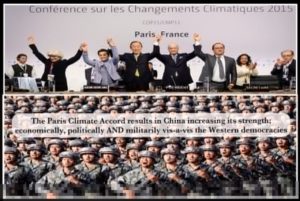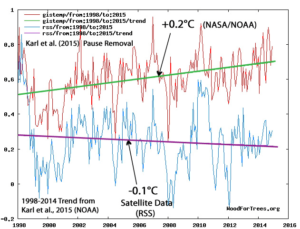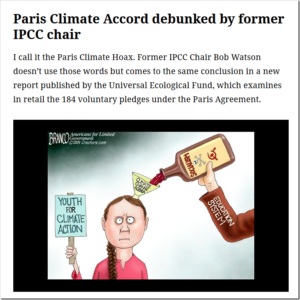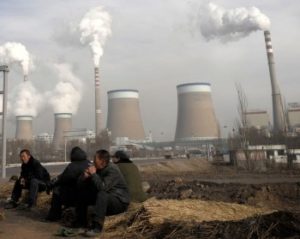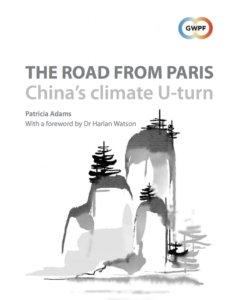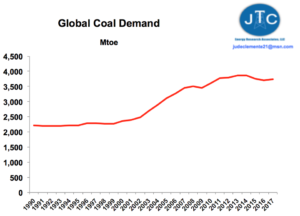by R. Pielke Jr, Nov 24, 2025 in ClimateChangeDispatch
The touted achievements of global climate initiatives aren’t rooted in reality.

In 2015 in Paris, countries from around the world agreed to accelerate the decarbonization of their economies in response to climate change. [emphasis, links added]
According to the United Nations Framework Convention on Climate Change (UNFCCC), implementation of the Paris Agreement over the past decade has been a runaway success story, moving the world away from what would have been a global catastrophe.
At the opening of COP30 earlier this month, U.N. Climate Change Executive Secretary Simon Stiell hailed the purported achievements of the initiative:
Over three decade [sic] ago in Rio, humanity set a new course of global climate cooperation. Ten years ago, in Paris, we took a major step forward. Without that act of collective courage, we would still be headed for an impossible future of unchecked heating, of up to 5 degrees. Because of it, the curve has bent below 3°C – still perilous, but proof that climate cooperation works.
The media amplified the victory lap.
Take, for instance, CNN’s reporting on the summit:
Ten years ago, humanity was burning so much fossil fuel that Earth was on track to overheat by a catastrophic 4 degrees Celsius by century’s end. But then came Paris, when nearly 200 nations agreed to wean themselves off of oil, gas, and coal; protect more nature; and hold the global warming line at 1.5 [degrees Celsius]. The Paris Accords led to innovation and market forces that now make sun, wind, and storage cheaper and more popular than ever.
The world was headed for a climate apocalypse, and thanks to climate advocacy and an international agreement, the worst has been avoided. We simply need to stay the course to finish the job.
That’s the story that climate advocates and the media are now telling about global climate policy. Unfortunately, that narrative is not rooted in reality.
…

